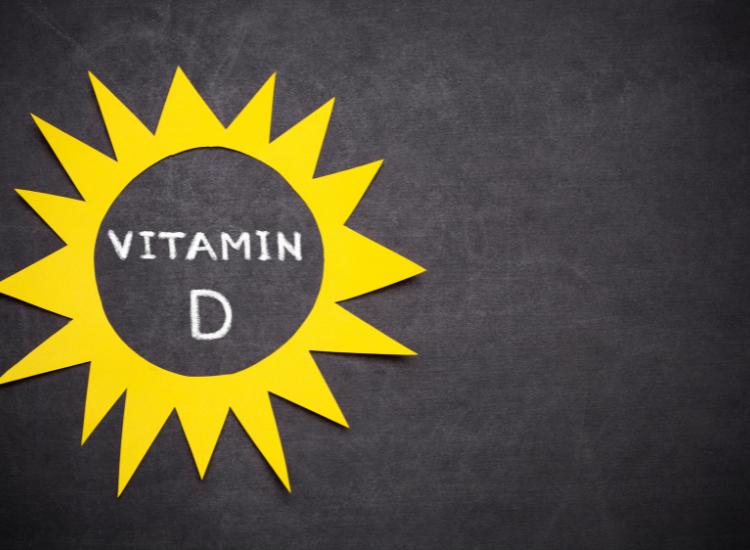
Vitamin D, fondly known as the “Sunshine Vitamin,” is a vital nutrient for maintaining our overall well-being. Food that provides you Vitamin D.
This unique vitamin not only helps in strengthening our bones but also plays a significant role in enhancing our immune system, regulating our mood, and much more.
Unlike other nutrients, our bodies can produce Vitamin D when our skin is exposed to sunlight.
However, due to factors like living in regions with less sunlight, working indoors, or wearing sunblock, many people might not get enough of this essential vitamin.
In such cases, incorporating dietary sources of Vitamin D becomes crucial.
In this article, we will explore nine fantastic foods that are high in Vitamin D, which will help you maintain optimum levels of this essential nutrient.
Vitamin D deficiency can lead to various health issues such as weak bones, muscle pain, fatigue, and even depression.
Individuals who are more prone to Vitamin D deficiency include the elderly, people with darker skin tones, and those who live in regions with limited sunlight.

It is essential to recognize the signs and risks associated with Vitamin D deficiency and take appropriate measures to ensure adequate intake.
Vitamin D plays a crucial role in our body, from assisting in calcium absorption for healthy bones and teeth to supporting our immune system.
It also helps in mood regulation, which helps combat feelings of depression and anxiety.
Recent research has even suggested a link between sufficient Vitamin D levels and a reduced risk of developing chronic diseases like heart disease and certain types of cancer.
One of the best food sources of Vitamin D is fatty fish like salmon, mackerel, and sardines.
These fish varieties are not only rich in Vitamin D but also contain heart-healthy omega-3 fatty acids.
Try including these fish in your diet by grilling, baking, or making delicious Indian fish curries.
Cod liver oil, commonly available in capsule form, is an excellent source of Vitamin D.
It is also rich in omega-3 fatty acids and Vitamin A.
The recommended daily intake of cod liver oil varies depending on age, so consult your doctor before incorporating it into your routine.
Canned tuna is another fish variety that is high in Vitamin D.
You can opt for water-packed tuna over oil-packed versions to keep the calorie count low.
You can use canned tuna in sandwiches, salads, or traditional Indian dishes like tuna cutlets.
Egg yolks are a good source of Vitamin D, making eggs a great addition to your diet.
You can incorporate more egg yolks into your meals by preparing dishes like masala omelettes, egg curry, or the classic Anda Bhurji.
Though not a common ingredient in Indian cuisine, beef liver food is rich in Vitamin D. You can prepare beef liver in a variety of ways, such as pan-frying it with onions and spices or making a delicious beef liver curry.
Some varieties of cheese, like Swiss and Cheddar, contain small amounts of Vitamin D. You can add cheese to your sandwiches, salads, or enjoy it as a snack with some crackers.
Mushrooms, like food especially wild varieties like maitake and chanterelles, are unique plant-based sources of Vitamin D.
To include more mushrooms in your diet, try adding them to curries, soups, or stir-fries.
Fortified foods are those to which essential vitamins and minerals have been added.
Many dairy products, like milk and yogurt, as well as orange juice and cereals, are often fortified with Vitamin D.
These foods are excellent options, especially for vegetarians and vegans.
Make sure to check the nutrition label on the packaging to ensure you’re getting your dose of Vitamin D.
If natural food sources and sunlight exposure are not enough, you might need to consider Vitamin D supplements.
It’s always best to consult with a healthcare provider before starting any supplement regimen.
They can guide you on the right dosage based on your needs and current Vitamin D levels.
To get the most out of your Vitamin D intake, try to pair these foods with a source of fat.
Vitamin D is a fat-soluble vitamin, which means it’s better absorbed when consumed with fat.
Avocados, nuts, and seeds are great options for this. Furthermore, spending time in the sunlight can boost your body’s Vitamin D synthesis.
Just remember to protect your skin if you’re out in the sun for long periods.
Vitamin D is an essential nutrient that plays a significant role in maintaining our overall health.
While our bodies can produce Vitamin D through sun exposure, it’s essential to also incorporate Vitamin D-rich foods in our diet.
From fatty fish and egg yolks to fortified foods and even supplements, there are various sources to ensure you get your daily dose of this “Sunshine Vitamin.”
So, let’s make a conscious effort to include these foods in our meals and live a healthier, happier life.
Dr Sushil is a researcher and founder of D WA Herbals with objective of providing healthy longevity to society. His aim is to develop food and drink-based products by using the inherent qualities of traditional herbs by optimizing their effect through modern technology, making our products extremely user-friendly. The research is focused on various lifestyle issues such as anxiety, stress, metabolism, digestion, immunity and may more which impact the health and lifestyle.
© 2023 DWA HERBALS. All Rights Reserved. Designed by NXlogy